In India and around the world, most of the people wake up to the aroma of coffee. When we sip a cup of coffee we always think about how our day will go and what we must accomplish throughout the day. I always have a cup of Nescafe every evening after returning home from office. It not only refreshes me, but helps me to relax. I have been having Nescafe since my birth and in my house coffee means Nescafe. Did you ever wonder what goes behind in making that perfectly brewed tiny cup of coffee?
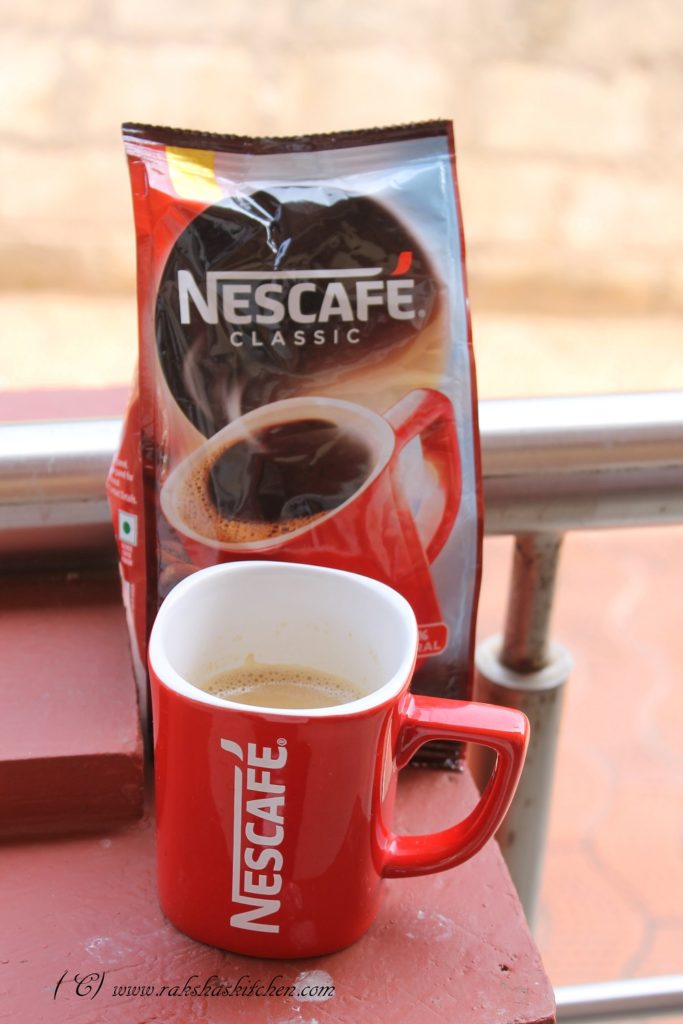
Few days back I visited the Nescafe Coffee Plantations at Coorg. This was my second visit to Coorg. During the first visit, which was also a family trip, I was just introduced to coffee beans and coffee plants by the tourist guide. But during my second visit, I learnt a lot about what goes in making that perfect cup of coffee. This was not just admiring the coffee beans and the greenery in the coffee plantations, but the second trip was way beyond that. It was the learning about Nescafe Plan.
Nestle India selected few bloggers to explore the Nestle coffee farms in Kushalnagar. We started our trip from Bangalore on Friday evening after office. Nestle had arranged an overnight stay for us in Fortune JP Palace Hotel, Mysore. Next day, early morning we started for Kushalnagar.
When we reached Coorg (Kushalnagar), I felt excited as Nescafe would show me how that perfect cup of coffee is made from bean to cup. We were welcomed with happy smiles and red cups of hot coffee. 🙂
We got to meet and interact with some farmers and coffee experts who took us through the growing, picking and roasting process. We also got to see coffee in various stages i.e. from blossom to green and red cherries to the roasted beans. The coffee bushes are pruned regularly for the best yield. These coffee plantations stay for 50 to 100 years if maintained properly.
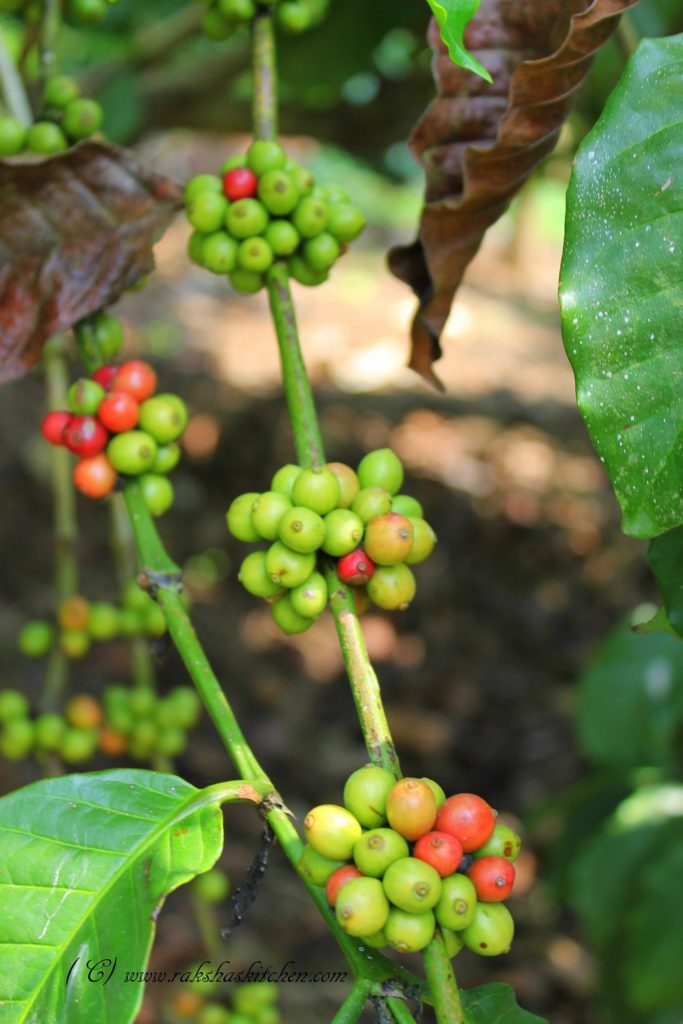
Coffee Cherries
We then went to see the demo coffee farm. The Nescafe Coffee demo farm serves as a model farm on best practices. We also went to the Coffee tasting centre where we got to appreciate different blends. A coffee tasting expert demonstrated the art of selecting blends and shared with us some notes on tasting coffee.
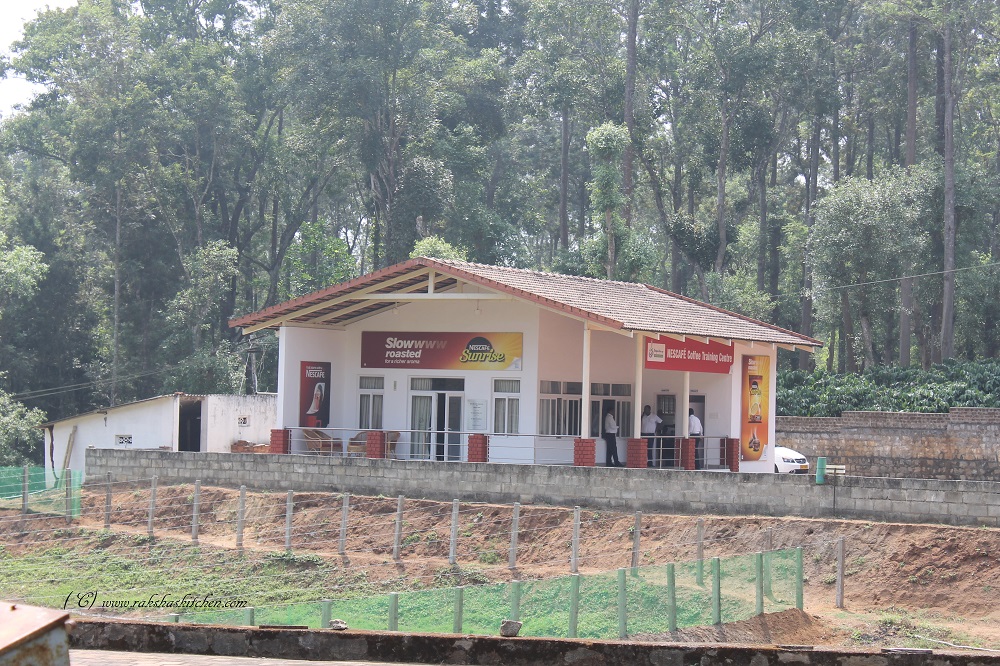
Nescafe Demo Farm
The Nescafe Plan:
The Nescafe Plan was launched in India on Jan 5th 2012 with a focus on three districts in the main coffee growing regions: Coorg and Chikmagalur in Karnataka and Waynad in Kerala. The Nescafe Plan is present in 19 different countries. It is a global initiative which supports responsible farming, production and consumption.
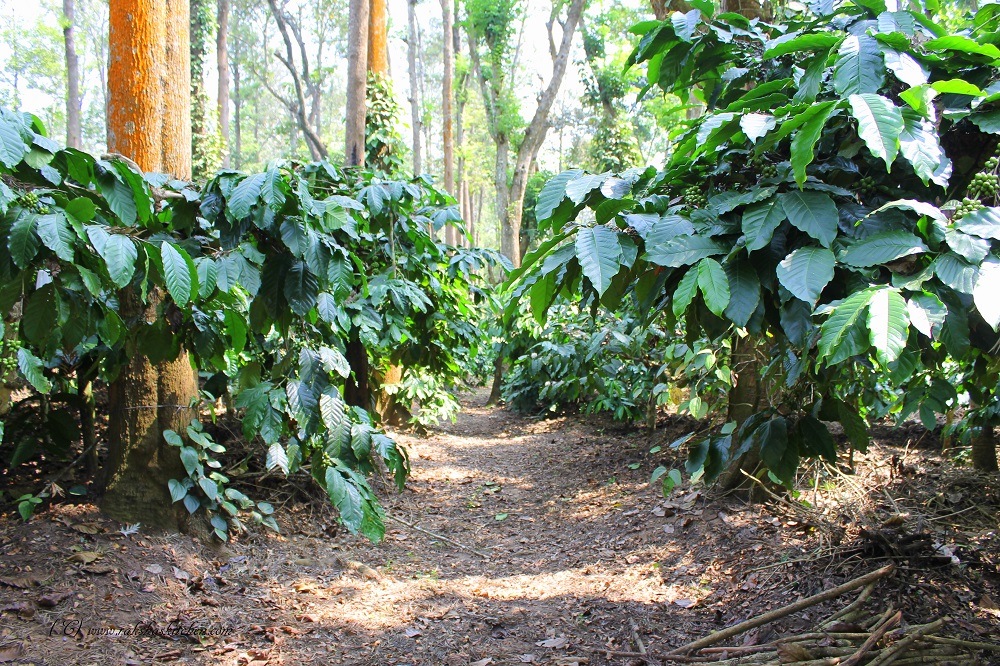
Coffee Plantation
The Nescafe Plan brings together under one umbrella, the commitments of Nestle towards coffee community. It’s more than just providing the best quality in a cup. It’s beyond the cup.
It also helps adopt the best practices for sustainable production. Farmers are trained on Nescafe better farming practices for sustainable production. Technical assistance is provided to farmers on a regular basis to improve the farm productivity and quality by providing technical assistance on best agronomic practices, waste management, environment conservation, record keeping, soil and water conservation and soil testing facility.
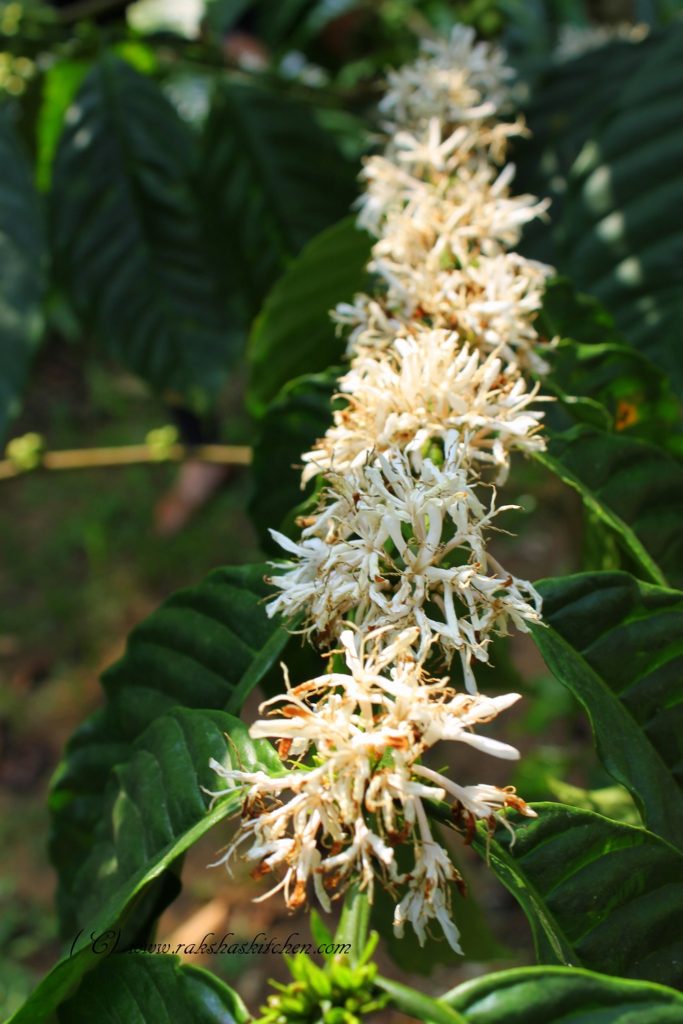
Coffee Blossoms
Being the world’s leading coffee brand, Nescafe takes responsibility to continue to supply good quality coffee to consumers, while ensuring that coffee farming remains attractive to farmers too. The Nescafe Plan aims to transform coffee-farm management to benefit working and future generations of farmers to have lower environmental footprint and to secure good quality supply.
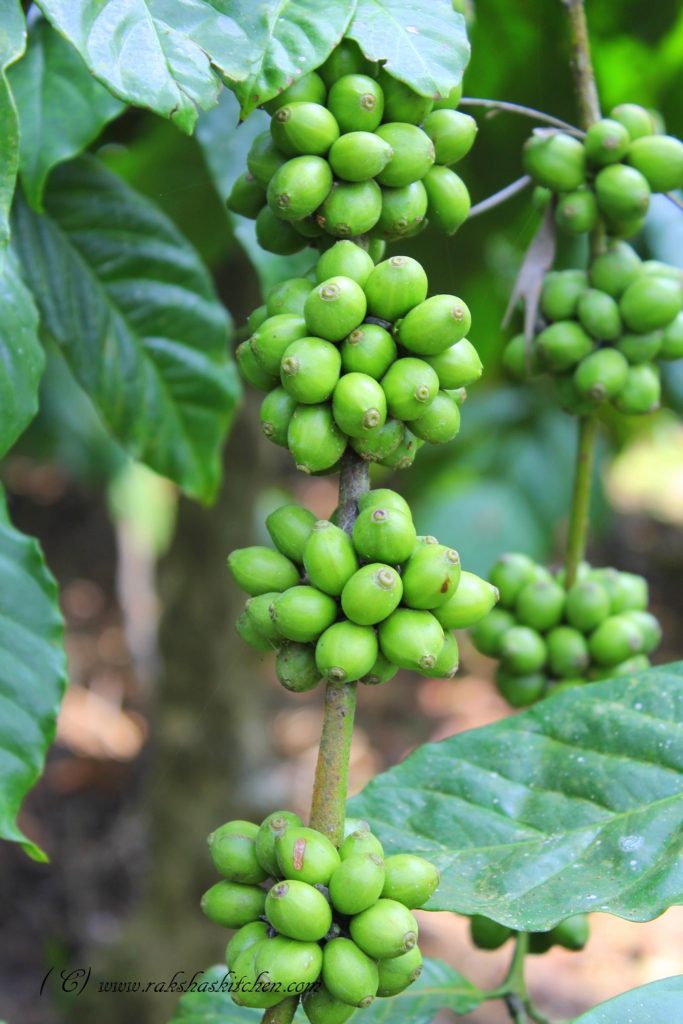
Green Unripe Coffee Cherries
By working with farmers in this way, they know where the coffee comes from, and they know they have a partner who will give them competitive prices for high quality produce. Rs. 2/- per kg of coffee is paid to farmers by Nescafe above market value so that farmers can invest it in farms. Complete traceability of coffee is maintained. With codes on your bottle, they can figure where it grew to where it was packed.
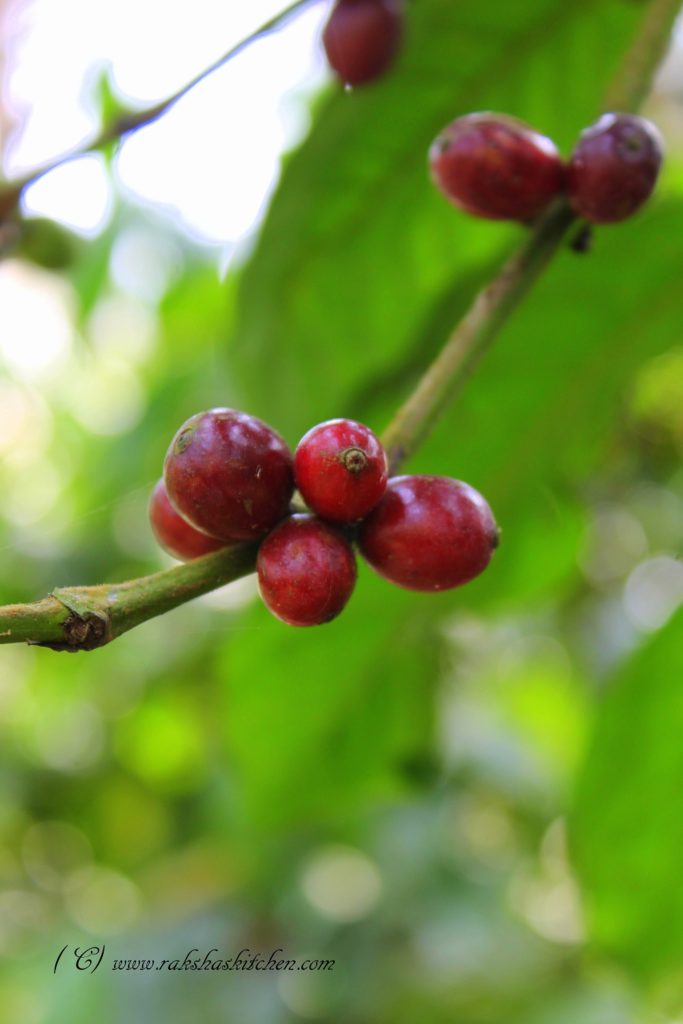
Ripe Red Coffee Cherries
NESCAFÉ Better Farming practices training sessions is a complete package of solutions to all the issues that coffee farming community is facing in India. They also support farmers in conducting assessments and obtaining certification from the Common Code for the Coffee Community (4C Association), Rainforest alliance and Sustainable Agriculture Network (SAN).
The training manual is published in 3 languages – Kannada, Malayalam and English and is distributed to farmers.
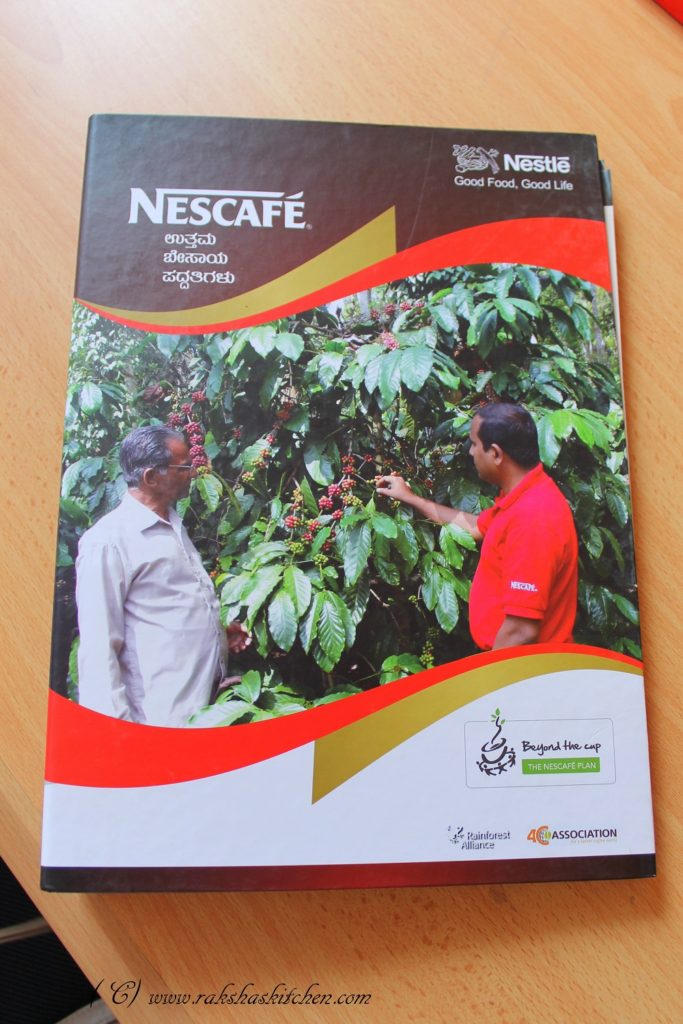
Training Manual
Technical assistance on following topics is provided by Nestle by farm visits, thus benefiting more than 1000 farms.
- Pest and disease management
- Plastic waste collection disposal
- Chemical waste water management
- Farm record keeping
- Field demonstration of coffee harvester
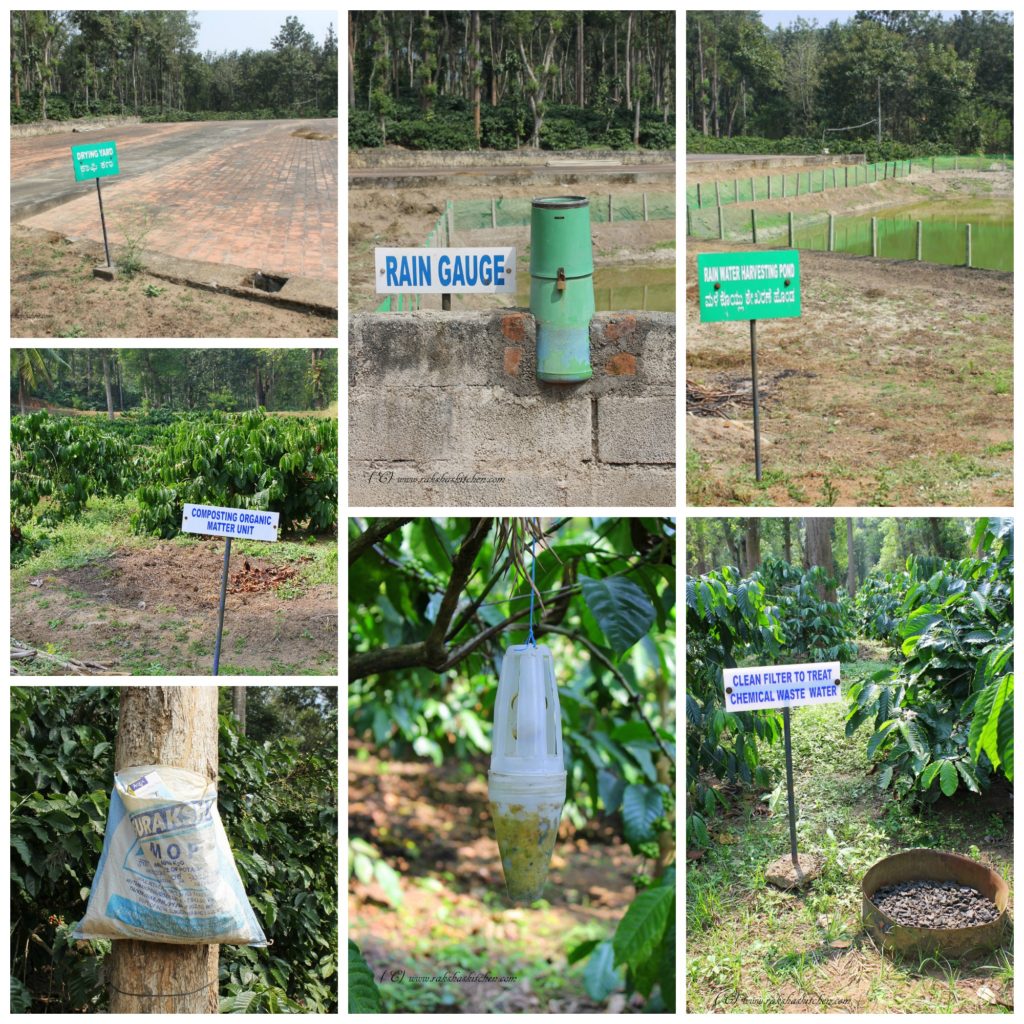
Best Farming Practises
Technical assistance is also provided on improving quality of green coffee
- Directly drying on soil
- Mixing soil – earthy/chemical taste
- Drying on cement drying yard
- Using plastic sheets to avoid soil contact
- Proper storage of coffee
Soil testing is very important to determine how much and what fertilizers to use. Soil testing and fertilizer recommendation is conducted by Nestle as a part of this plan. It benefited more than 1200 coffee farms. Some activities like demonstration of digging soil pit for soil collection, drying soil samples in the demo farm before dispatch, etc. are conducted regularly. Soil report/fertilizer recommendation is done by Nestle, thus helping the farmers.
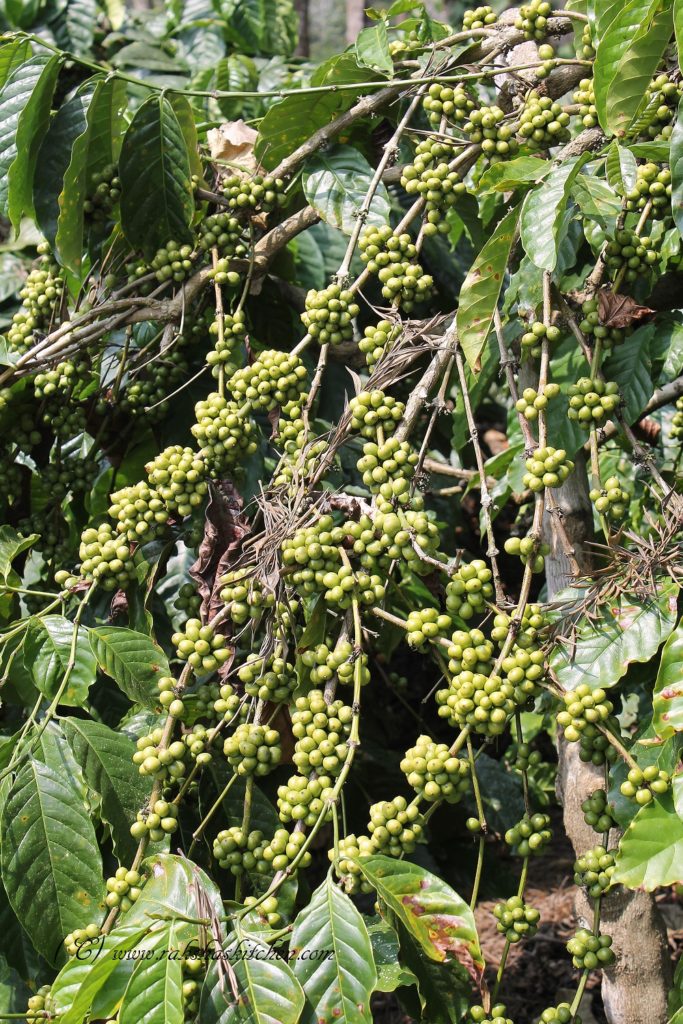
A Coffee Bush
Creating Shared Value Impact (CSV) initiatives in coffee region:
- Clean drinking water facility
- Sanitation facility in the areas they operate.
- Nutrition and health awareness programmers
- Distribution of stationaries to school children in coffee regions
The Nescafe farm connects the coffee farm and end consumer to ensure long term security to farmers and secure raw materials for NESCAFE in future.
Community Development Programs like following were conducted and it benefited 600 coffee farming families or workers:
- Medical camps
- Healthy kids program
- Regular health checkups
- Blood sugar checkups
- Providing medicines to farmers
- Child specialist
- Nescafe also sponsors ‘Hockey Cup’ every year in coffee regions of India.
- Safe drinking water facility for schools
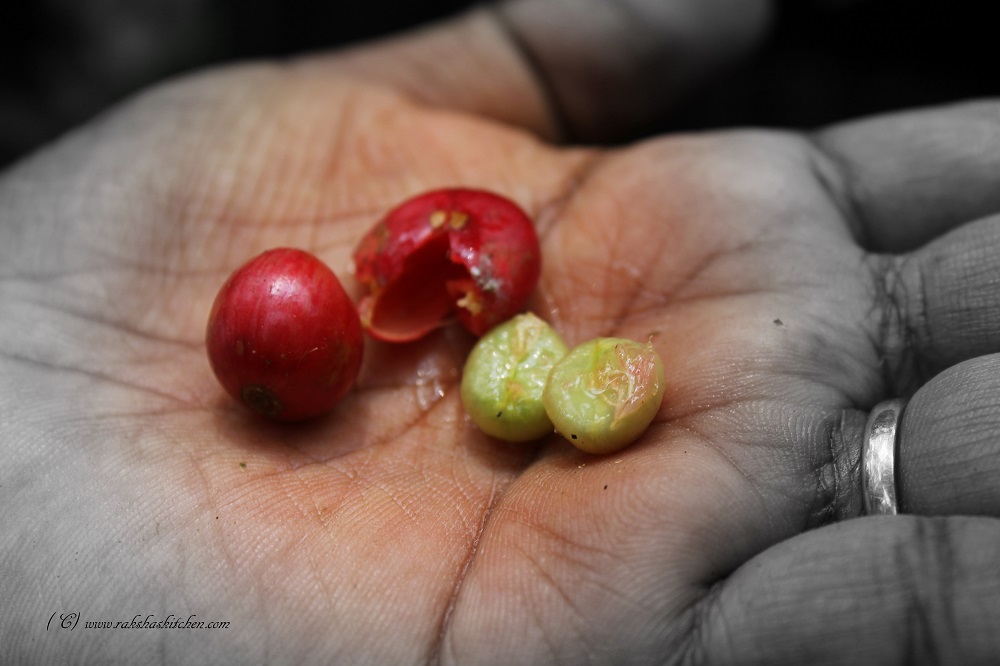
Ripe Coffee Cherries
The best part was that no child labour is allowed at coffee farms. Only the farmers work in coffee farms and children go to school.
After visiting the coffee farm and interacting with farmers and coffee experts, we went to the Green Coffee Sensory Lab. The Green Coffee Sensory Labs were established by Nestlé Nanjangud Coffee Factory for cup tasting of the pre-shipment samples at Kushalnagar and Kalpetta and support the coffee suppliers on:
- cup quality
- moisture analysis
- defect analysis
-
Coffee Beans At The Testing Center
100% of the coffee purchased from Karnataka and Kerala passes through these field labs. The cup tasting also known as “cupping” is carried out by well-trained sensory experts against Nestle’s global reference and check not only for the presence of desirable characters but also for the off-flavors in each cup.
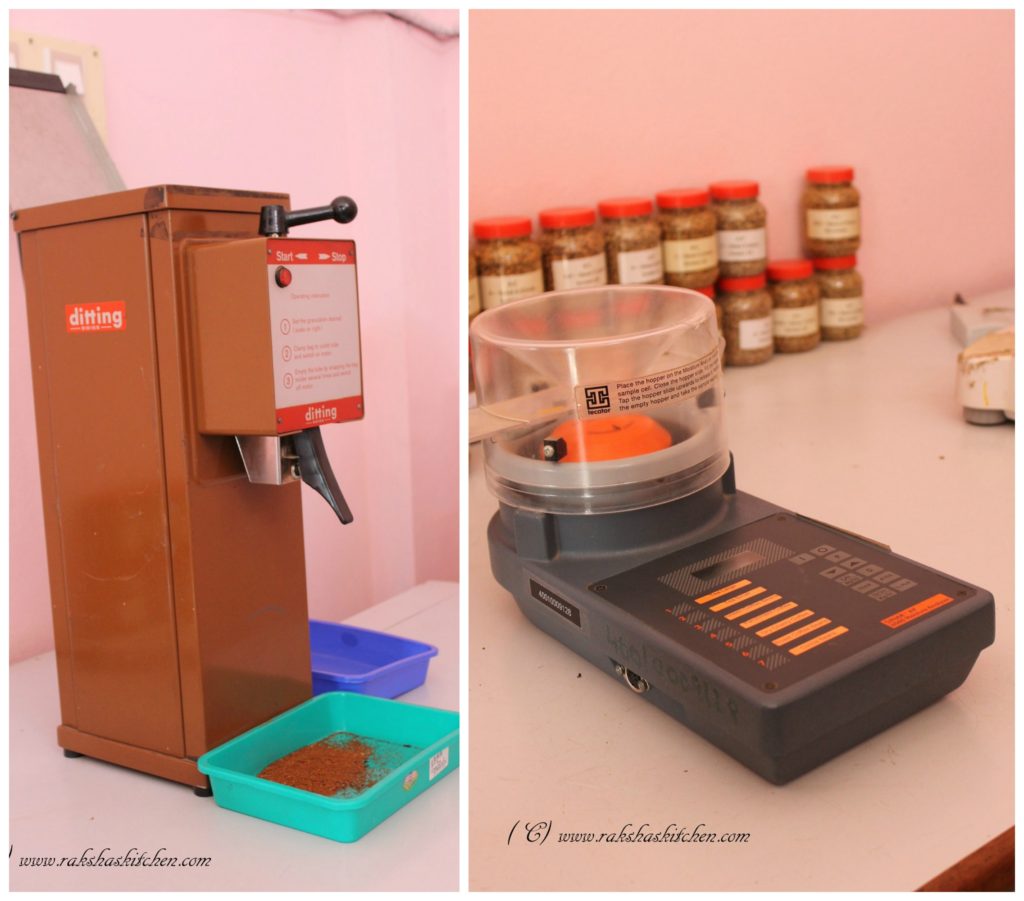
Coffee Grinder & Moisture Check Machine
During season the taster tastes 100 cups of coffee per day. He follows a strict diet and does not smoke.
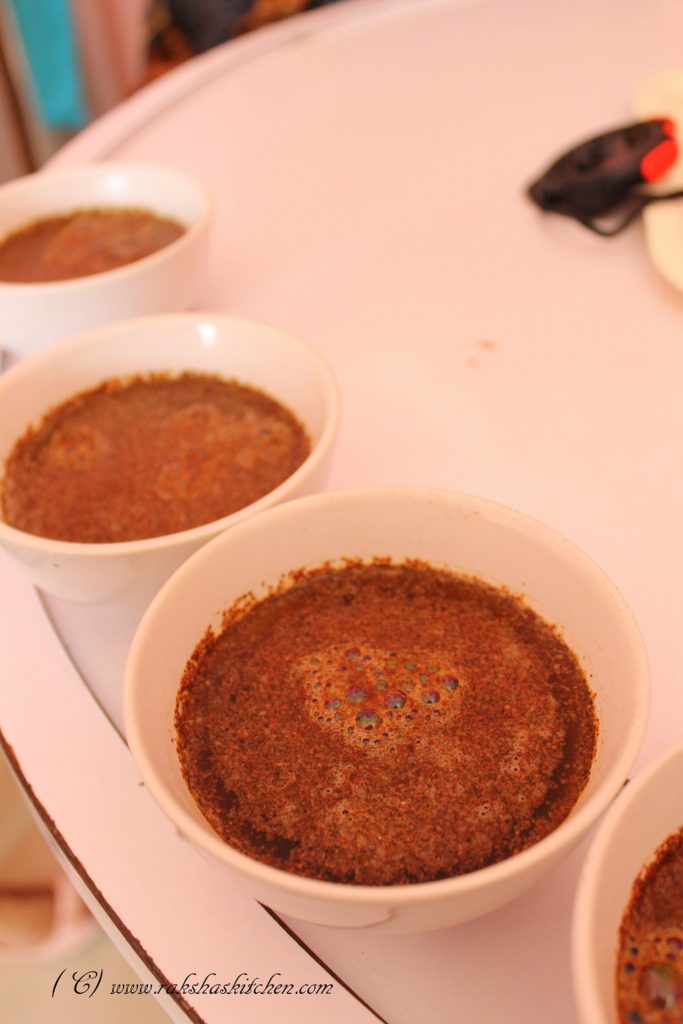
Cupping
100% of coffee brought from farmers is tested for quality against a standard. If standards do not match the sample is rejected and the suppliers need to replace with new lots of coffee. The truck load of coffee moves to Nanjangud factory only after approval from the Sensory labs. Over the years, the Sensory labs have immensely contributed for maintaining high quality coffee used to produce all the Nescafe products.
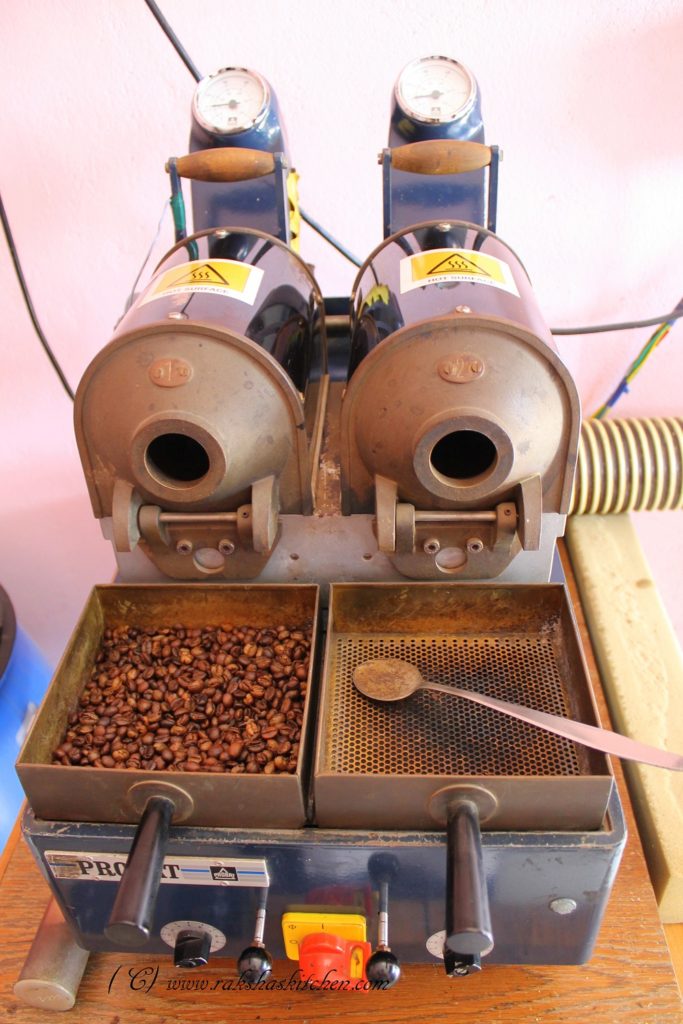
Coffee Beans Roasting Machine
Nescafe Plan creates value by fine tuning the farmer’s old practices to maximise the yield. At the end of the trip I was impressed by the amount of detail that goes in making that perfect cup of coffee right from bean to cup. So, next time you drink that cup of Nescafe, I am sure you will feel proud of that cup of coffee 🙂

Drink With Pride…
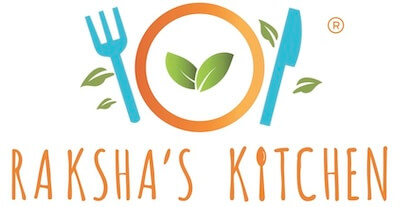
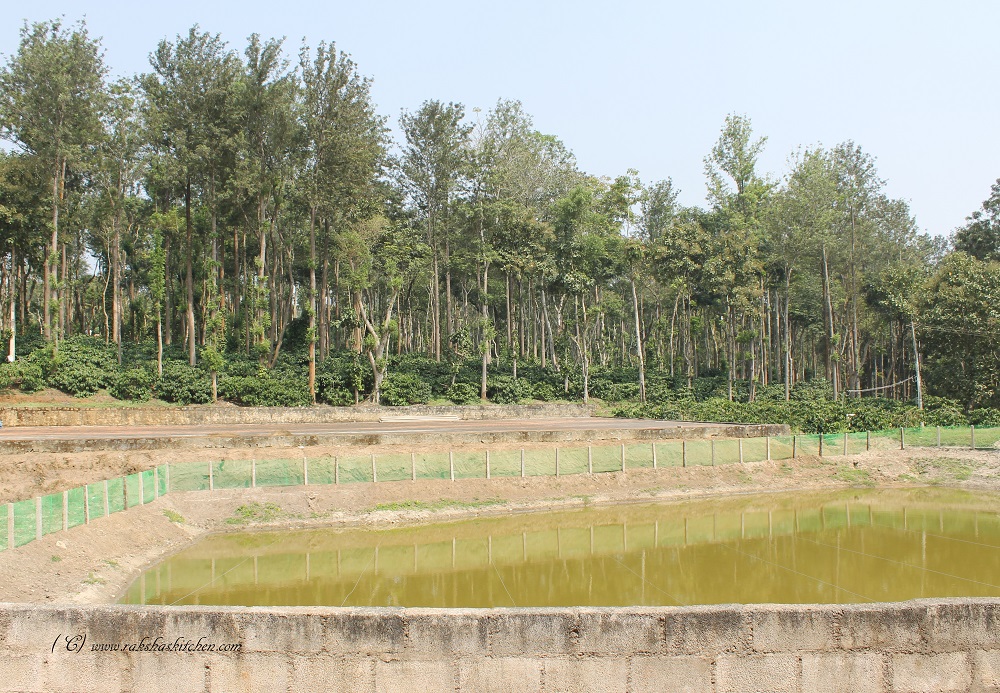
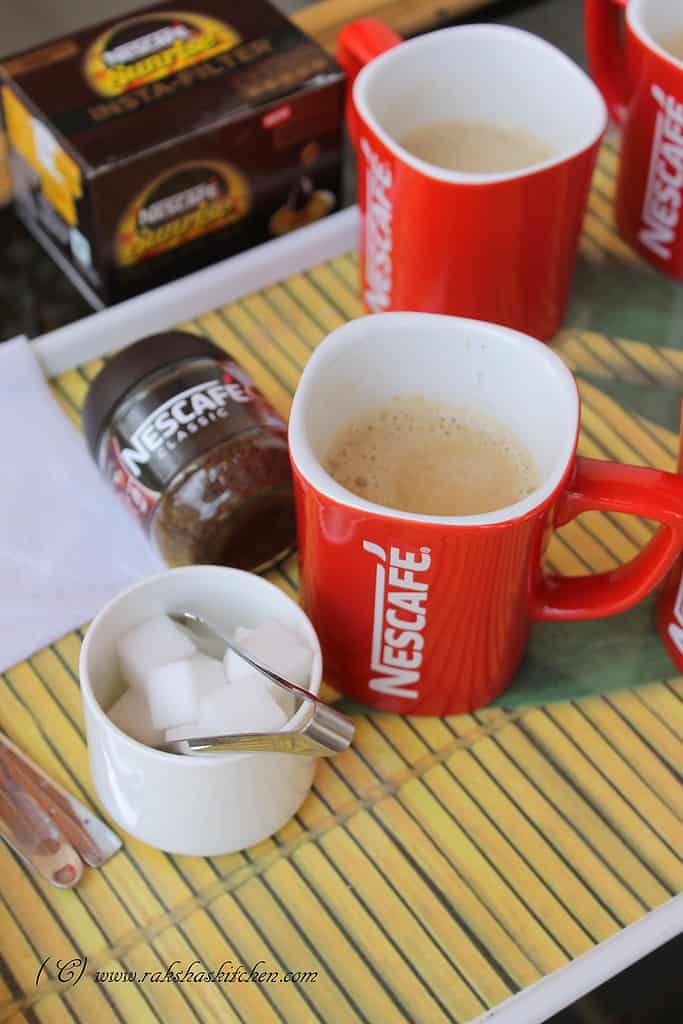
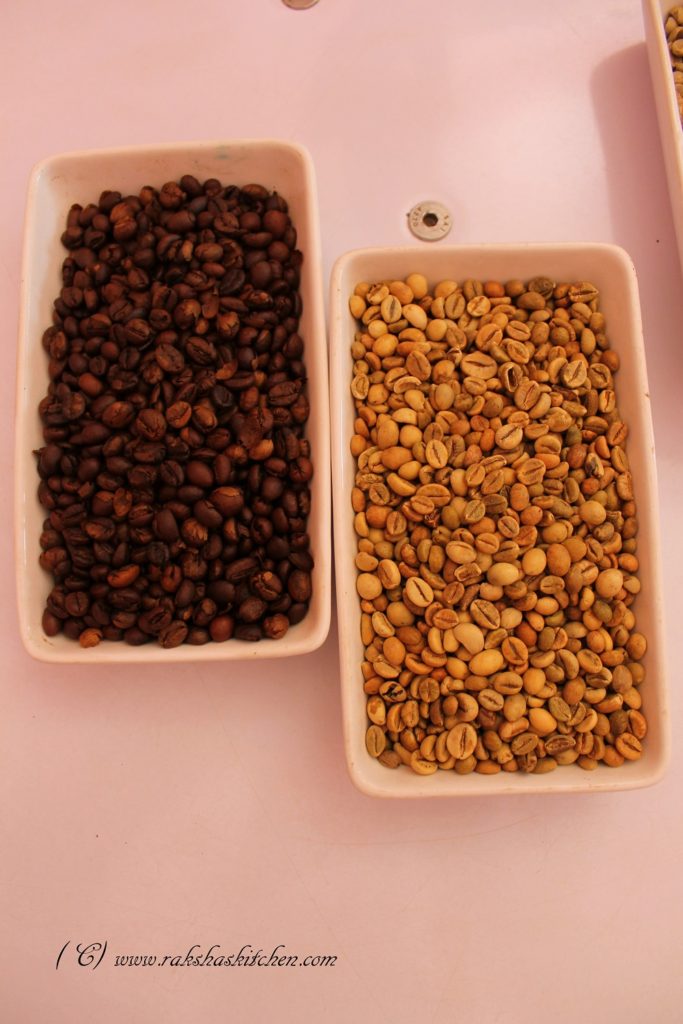

Thats a lovely write up….
Thanks a lot for the lovely comment Smitha